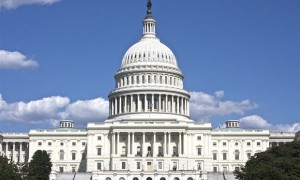 As I have written in the past, a lot of attention is currently being paid to the topic of student loan debt in the United States (a couple of representative posts can be found here and here). Earlier this year, President Obama proposed to make community college free for all students, motivated at least in part by concerns over the growing volume of student loan debt in the nation. With the 2016 presidential campaign starting to gear up, there are already indications that student loans will be an important topic of debate.
As I have written in the past, a lot of attention is currently being paid to the topic of student loan debt in the United States (a couple of representative posts can be found here and here). Earlier this year, President Obama proposed to make community college free for all students, motivated at least in part by concerns over the growing volume of student loan debt in the nation. With the 2016 presidential campaign starting to gear up, there are already indications that student loans will be an important topic of debate.
I recently received in my email inbox a request to sign a petition to “forgive all student loan debt” in the country. The email did not come from some fringe group that was an offshoot of the Occupy Movement that first started a few years ago, and included as one of its platforms the elimination of all student loan debt. The email came from the American Federation of Teachers, the second-largest teacher union in the country, representing over 1.6 million members. The AFT, in conjunction with other groups, is calling on President Obama and Congress to wipe out all of the existing $1.3 trillion in loan debt held by current and former college students in the nation.
Continue reading “Why I won’t sign the petition to cancel all student debt”



 The presidential election is less than a month away, and the candidates are gearing up for the final push. As most observers expected, the economy has dominated much of the political discourse. But other topics have crept into the campaigns, including education.
The presidential election is less than a month away, and the candidates are gearing up for the final push. As most observers expected, the economy has dominated much of the political discourse. But other topics have crept into the campaigns, including education. cation Arne Duncan’s Race to the Top program. President Obama, not surprisingly, also touted the Race to the Top program, as well as other initiatives his Department of Education and administration had put into place, including steps to try to control the growth in tuition prices across the country.
cation Arne Duncan’s Race to the Top program. President Obama, not surprisingly, also touted the Race to the Top program, as well as other initiatives his Department of Education and administration had put into place, including steps to try to control the growth in tuition prices across the country.